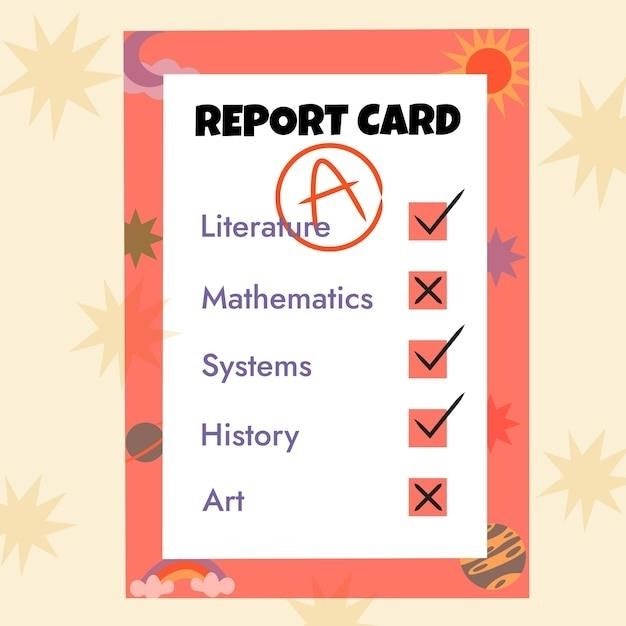ramp test answers 2023 pdf

RAMP Certification⁚ A Guide to Understanding the Process
The Responsible Alcohol Management Program (RAMP) certification is a critical requirement for businesses serving alcohol in Pennsylvania. This comprehensive guide explores the intricacies of RAMP certification‚ providing insights into its components‚ legal implications‚ and the benefits of compliance.
What is RAMP Certification?
RAMP certification is a mandatory program in Pennsylvania for businesses licensed to serve alcohol. It’s designed to promote responsible alcohol service and prevent the sale of alcohol to minors or intoxicated patrons. The program consists of various components that licensees and their employees must complete.
RAMP certification is not just a test; it’s a comprehensive program that includes training‚ education‚ and resources. It covers a wide range of topics‚ including⁚
- Identifying valid IDs and recognizing fake IDs
- Recognizing signs of intoxication and knowing how to refuse service to visibly intoxicated patrons
- Understanding the legal consequences of serving alcohol to minors or intoxicated individuals
- Implementing responsible alcohol service practices‚ such as limiting the number of drinks served to a single patron
- Creating a safe and responsible environment for customers and employees
By completing the RAMP program‚ licensees demonstrate their commitment to responsible alcohol service and earn a certification that signifies their compliance with Pennsylvania liquor laws;
Components of RAMP Certification
RAMP certification is a multi-faceted program encompassing several key components designed to ensure responsible alcohol service. These components are crucial for licensees and their employees to understand and comply with in order to maintain their certification;
The primary components of RAMP certification include⁚
- Owner/Manager Training⁚ This training is mandatory for all owners‚ managers‚ and individuals responsible for the overall operation of a licensed establishment. It provides in-depth information about Pennsylvania liquor laws‚ RAMP compliance‚ and the responsibilities associated with serving alcohol.
- Server/Seller Training⁚ All employees who serve or sell alcohol must undergo this training. It focuses on practical skills like age verification‚ recognizing signs of intoxication‚ and implementing responsible service practices.
- New Employee Orientation⁚ This component ensures that new employees receive basic information about RAMP certification‚ responsible alcohol service‚ and the establishment’s policies related to alcohol sales.
- Signage⁚ Licensed establishments must display specific signage related to RAMP certification. These signs inform patrons about the establishment’s commitment to responsible alcohol service‚ the consequences of serving alcohol to minors‚ and the policy on refusing service to visibly intoxicated individuals.
- Affidavit Request for RAMP Certification⁚ The licensee must complete an affidavit confirming their understanding of RAMP requirements and their commitment to compliance.
All of these components work together to create a comprehensive approach to responsible alcohol service‚ promoting a safe and compliant environment for patrons and employees.
Consequences of Serving Alcohol to Minors or Intoxicated Patrons
Serving alcohol to minors or visibly intoxicated patrons is a serious offense with significant legal repercussions. Pennsylvania law strictly prohibits the sale or furnishing of alcoholic beverages to individuals under the age of 21. Similarly‚ serving alcohol to someone who is demonstrably intoxicated poses a serious risk to both the individual and the public.
The consequences of violating these laws can be severe‚ including⁚
- Fines⁚ Licensees and employees who violate these laws can face substantial fines‚ potentially reaching up to $5‚000.
- Imprisonment⁚ In some cases‚ violators may face imprisonment for a period of 3 months to 1 year.
- License Suspension⁚ The Pennsylvania Liquor Control Board (PLCB) can suspend or revoke the license of an establishment found guilty of serving alcohol to minors or intoxicated individuals.
- Civil Liability⁚ Individuals who are injured as a result of an establishment serving alcohol to a minor or intoxicated person can file a civil lawsuit against the licensee. This could result in additional financial penalties and damages.
- Reputational Damage⁚ Negative publicity and public scrutiny can significantly harm the reputation of a business that violates these laws.
It’s crucial for licensees and employees to be aware of these consequences and prioritize responsible alcohol service practices to avoid legal and reputational repercussions.
Strict Liability⁚ Understanding the Legal Implications
The concept of strict liability plays a significant role in Pennsylvania’s alcohol service regulations. This legal principle holds licensees accountable for violations‚ even if they were not directly involved or aware of the specific incident. In essence‚ the burden of proof shifts from the prosecution to the licensee to demonstrate that they took all reasonable steps to prevent the violation. This means that a licensee can be found liable for serving alcohol to a minor or visibly intoxicated patron‚ even if the server or manager was unaware of the patron’s age or intoxication.
Strict liability underscores the importance of comprehensive training and robust procedures for all employees who handle alcohol service. Licensees must ensure that their staff is properly trained on age verification techniques‚ identifying signs of intoxication‚ and enforcing responsible service practices. This proactive approach helps to minimize the risk of violations and potential legal consequences.

To mitigate the risk of strict liability‚ licensees should implement the following measures⁚
- Thorough Employee Training⁚ Ensure all employees receive comprehensive RAMP certification training‚ emphasizing the importance of age verification‚ recognizing signs of intoxication‚ and upholding responsible service practices.
- Clear Policies and Procedures⁚ Establish and enforce clear policies regarding age verification‚ serving alcohol to intoxicated individuals‚ and handling refusal situations.
- Effective Supervision⁚ Provide adequate supervision of employees during alcohol service‚ ensuring compliance with established policies and procedures.
- Documentation⁚ Maintain proper documentation of all age verifications‚ refusals of service‚ and incidents involving intoxicated patrons.
Steps to Become RAMP Certified
The RAMP certification process is designed to ensure that licensees and their employees are equipped with the knowledge and skills necessary to serve alcohol responsibly. Here’s a breakdown of the essential steps involved in achieving RAMP certification⁚
- Complete Owner/Manager Training⁚ The first step is for the owner or manager of the establishment to complete the RAMP Owner/Manager Training course. This course covers a range of topics‚ including Pennsylvania’s liquor laws‚ the responsibilities of licensees‚ and the importance of responsible alcohol service practices.
- Complete Server/Seller Training⁚ All alcohol service personnel‚ including servers‚ bartenders‚ and sellers‚ must complete the RAMP Server/Seller Training course. This course provides detailed information on age verification procedures‚ recognizing signs of intoxication‚ and handling refusal situations.
- Implement New Employee Orientation⁚ Upon hiring new employees who will be serving alcohol‚ licensees must conduct a comprehensive orientation program that covers the essentials of RAMP certification and responsible alcohol service practices.
- Post Signage⁚ Licensees must display prominent signage that clearly communicates their commitment to responsible alcohol service. This signage typically includes information about acceptable forms of identification‚ the consequences of serving alcohol to minors or intoxicated patrons‚ and the establishment’s policy on refusing service.
- Submit an Affidavit⁚ After completing the necessary training and implementing the required policies and procedures‚ licensees must submit an affidavit to the Pennsylvania Liquor Control Board (PLCB) attesting to their compliance with RAMP certification requirements. The PLCB will then review the application and issue a RAMP certification if all requirements are met.
By successfully completing these steps‚ licensees demonstrate their commitment to responsible alcohol service and earn the coveted RAMP certification.
Benefits of RAMP Compliance
RAMP certification is more than just a legal requirement; it offers a multitude of benefits for licensees and their establishments. By embracing responsible alcohol service practices‚ businesses can foster a safer environment‚ enhance their reputation‚ and potentially reduce their liability risks. Here are some key advantages of RAMP compliance⁚
- Reduced Liability⁚ RAMP certification demonstrates a licensee’s commitment to responsible alcohol service‚ which can help mitigate liability in the event of incidents involving underage drinking or alcohol-related injuries; By adhering to RAMP guidelines‚ licensees can minimize their risk of legal action and associated penalties.
- Enhanced Reputation⁚ Compliance with RAMP standards showcases a licensee’s dedication to customer safety and responsible business practices. This positive image can attract customers who value responsible alcohol service‚ contributing to a more positive brand reputation and increased customer loyalty.
- Improved Employee Training⁚ RAMP certification requires comprehensive training for all alcohol service personnel‚ equipping them with the knowledge and skills to serve alcohol responsibly. This training can lead to a more confident and competent workforce‚ reducing the likelihood of errors and promoting a safer environment for both employees and patrons.
- Potential for Reduced Insurance Costs⁚ Some insurance providers may offer discounted premiums to licensees who have achieved RAMP certification‚ recognizing their commitment to responsible alcohol service and reduced liability risk. This financial benefit can further incentivize licensees to pursue RAMP compliance.
- Positive Community Impact⁚ RAMP certification fosters a culture of responsible alcohol service within the community‚ contributing to a safer and more enjoyable environment for everyone. By promoting responsible drinking practices‚ licensees can help reduce alcohol-related incidents and create a more positive atmosphere within their communities.
Overall‚ RAMP certification offers significant benefits for licensees‚ their employees‚ and the community as a whole. By embracing responsible alcohol service practices‚ licensees can create a safer environment‚ enhance their reputation‚ and potentially reduce their liability risks.
Key RAMP Certification Questions and Answers
Navigating the RAMP certification process can raise questions for both licensees and their employees. Here are some frequently asked questions with detailed answers to help you understand the key aspects of RAMP certification⁚
- Q⁚ What are the components of RAMP certification?
A⁚ RAMP certification consists of five essential components⁚
1. Owner/Manager Training⁚ Licensees must complete training to understand their responsibilities and ensure compliance.
2. Server/Seller Training⁚ All alcohol service personnel must complete training on responsible alcohol service practices.
3. New Employee Orientation⁚ New employees must be properly oriented on the RAMP program and receive initial training.
4. Signage⁚ Establishments must display clearly visible signs indicating their RAMP certification and outlining the legal drinking age and the consequences of serving alcohol to minors or intoxicated individuals.
5. Affidavit Request for RAMP Certification⁚ Licensees must submit an affidavit to the Pennsylvania Liquor Control Board (PLCB) confirming their compliance with RAMP requirements.
- Q⁚ What are the consequences of serving alcohol to minors or intoxicated patrons?
A⁚ Serving alcohol to minors or visibly intoxicated individuals can result in serious legal consequences‚ including⁚
1. Fines⁚ Licensees and employees may face substantial fines.
2. License Suspension⁚ The PLCB may suspend the establishment’s liquor license.
3. Criminal Charges⁚ Individuals may face criminal charges‚ including imprisonment.
- Q⁚ What is strict liability‚ and how does it apply to RAMP certification?
A⁚ Strict liability means that a licensee is held responsible for violations‚ regardless of whether they were directly involved in the incident. Under RAMP‚ licensees are held responsible for ensuring their employees are properly trained and that their establishments comply with all regulations‚ even if a specific employee violates the rules.
Understanding these key questions and answers is essential for licensees and their employees to ensure compliance with RAMP regulations and mitigate potential risks associated with serving alcohol.
RAMP Exam Questions and Answers (PDF Downloads)
Preparing for the RAMP exam can be a daunting task‚ but with the right resources‚ you can confidently navigate the test. Many websites and online platforms offer comprehensive study materials‚ including practice exam questions and answers in PDF format. These resources can help you familiarize yourself with the exam format‚ the types of questions asked‚ and the key concepts covered.
Here’s what you can expect to find in RAMP exam question and answer PDFs⁚
- Multiple Choice Questions⁚ The majority of RAMP exams consist of multiple-choice questions designed to assess your understanding of Pennsylvania’s liquor laws‚ responsible alcohol service practices‚ and the RAMP program. These PDFs provide a wide range of practice questions‚ covering topics such as⁚
⎼ Identifying acceptable forms of ID
‒ Recognizing signs of intoxication
⎼ Handling refusal of service situations
‒ Understanding the consequences of violations
- True/False Questions⁚ Some RAMP exams may include true/false questions to test your knowledge of specific regulations and legal requirements. These practice PDFs provide accurate answers to help you solidify your understanding of important concepts.
- Scenario-Based Questions⁚ You may encounter scenario-based questions that require you to apply your knowledge to real-life situations. These PDFs often present realistic scenarios‚ allowing you to practice your decision-making skills and ensure you can handle challenging situations effectively.
By utilizing these valuable resources‚ you can enhance your understanding of RAMP certification requirements‚ improve your exam preparation‚ and increase your chances of success on the RAMP exam.
RAMP Server/Seller Training
RAMP Server/Seller Training is a mandatory component of the RAMP certification process for all new alcohol service personnel hired after August 8‚ 2016. This training is designed to equip servers and sellers with the knowledge and skills necessary to serve alcohol responsibly‚ ensuring compliance with Pennsylvania’s liquor laws and promoting a safe environment for patrons.
RAMP Server/Seller Training covers a wide range of topics‚ including⁚
- Pennsylvania Liquor Laws⁚ Understanding the legal framework governing the sale and service of alcohol in Pennsylvania is paramount. Training covers key regulations regarding age verification‚ identifying intoxication‚ refusal of service‚ and the penalties associated with violations.
- Responsible Alcohol Service Practices⁚ Servers and sellers are trained on best practices to ensure responsible alcohol service. This includes recognizing signs of intoxication‚ setting limits on alcohol consumption‚ and understanding the effects of alcohol on the body.
- ID Verification⁚ Proper identification verification is critical to prevent underage drinking. Training covers acceptable forms of ID‚ techniques for verifying authenticity‚ and procedures for handling situations with questionable identification.
- Refusal of Service⁚ Servers and sellers must be prepared to refuse service to individuals who are underage or visibly intoxicated. Training covers the steps involved in politely but firmly refusing service‚ ensuring patron safety and compliance with the law.
- Dealing with Intoxicated Patrons⁚ Training covers strategies for managing intoxicated patrons‚ including recognizing signs of intoxication‚ de-escalating situations‚ and ensuring the safety of the intoxicated individual and other patrons.
RAMP Server/Seller Training is an essential component of responsible alcohol service in Pennsylvania‚ empowering servers and sellers with the knowledge and skills to make informed decisions‚ ensure the safety of patrons‚ and comply with legal requirements.
RAMP Certification Test 2023
The RAMP Certification Test is a crucial part of the RAMP certification process‚ designed to assess the knowledge and understanding of individuals serving alcohol in Pennsylvania. The test‚ typically administered online‚ covers a comprehensive range of topics related to responsible alcohol service‚ Pennsylvania liquor laws‚ and safe practices.
The RAMP Certification Test 2023 is a multiple-choice exam‚ typically consisting of 45 questions. The questions are designed to test the applicant’s understanding of key concepts such as⁚
- Pennsylvania Liquor Code⁚ The test assesses knowledge of the specific laws and regulations governing the sale and service of alcohol in Pennsylvania. This includes requirements for age verification‚ identification procedures‚ and penalties for violations.
- Responsible Alcohol Service Practices⁚ The test evaluates the applicant’s understanding of best practices for serving alcohol responsibly. This includes recognizing signs of intoxication‚ setting limits on alcohol consumption‚ and implementing strategies to prevent over-service.
- Refusal of Service⁚ Applicants are tested on their ability to identify situations where refusal of service is necessary‚ including underage patrons and visibly intoxicated individuals. The test covers the procedures for politely but firmly refusing service while ensuring patron safety.
- Dealing with Intoxicated Patrons⁚ The test evaluates the applicant’s knowledge of strategies for managing intoxicated patrons‚ including recognizing signs of intoxication‚ de-escalating situations‚ and ensuring the safety of the intoxicated individual and other patrons.
Passing the RAMP Certification Test is essential for obtaining RAMP certification‚ demonstrating a commitment to responsible alcohol service and compliance with Pennsylvania liquor laws.
RAMP Final Exam Answer Key
The RAMP Final Exam Answer Key is a valuable resource for individuals preparing for the RAMP certification exam. It provides a comprehensive set of answers to the exam questions‚ covering all the key topics tested. The answer key is typically available in PDF format‚ making it easy to download‚ print‚ and review.
Access to the RAMP Final Exam Answer Key can be found on various online platforms‚ including educational websites and dedicated learning resources. Some websites offer the answer key for free‚ while others may require a subscription or a small fee.
Using the RAMP Final Exam Answer Key effectively requires a strategic approach. It is essential to⁚
- Review the Answer Key Thoroughly⁚ Carefully examine each question and the corresponding answer provided in the key. Pay attention to the reasoning behind each answer and identify any areas where your understanding may be lacking.
- Focus on Key Concepts⁚ The answer key will highlight the most important concepts tested in the RAMP exam. Use this information to identify areas that require further study and practice.
- Practice with Similar Questions⁚ The answer key can be used as a guide to practice with similar questions. This will help you solidify your understanding of the concepts and improve your test-taking skills.
Remember‚ the RAMP Final Exam Answer Key is a valuable tool for preparing for the RAMP certification exam. However‚ it is essential to use it strategically and focus on understanding the underlying concepts rather than simply memorizing answers.



Leave a Reply
You must be logged in to post a comment.